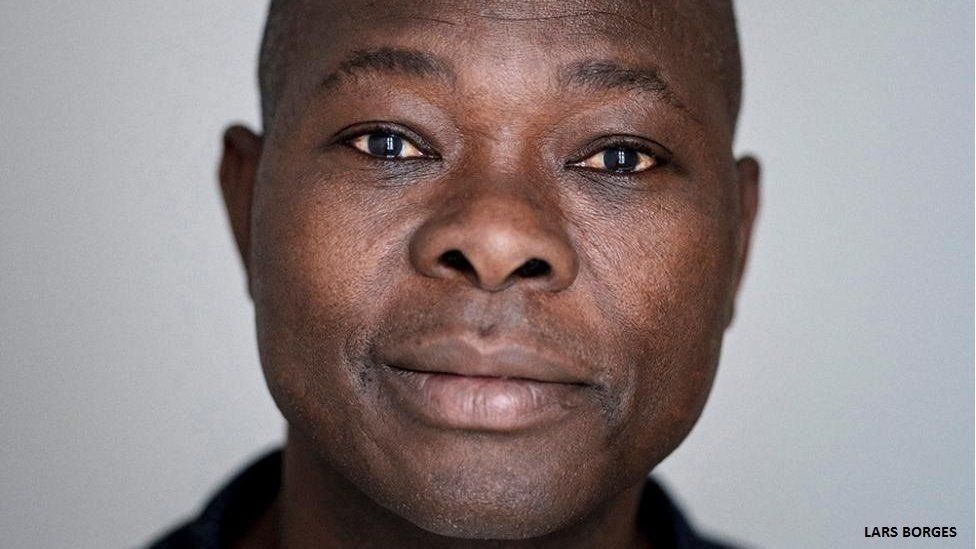Born in Burkina Faso, Diébédo Francis Kéré has become the first African to win architecture’s top award, Pritzker Prize, which is often referred to as the Nobel Prize of architecture.
Mr Kéré, 56, was elated to receive what is considered architecture’s most renowned award, describing himself as the “happiest man on the planet”.
“His cultural sensitivity not only delivers social and environmental justice, but guides his entire process, in the awareness that it is the path towards the legitimacy of a building in a community. He knows, from within, that architecture is not about the object but the objective; not the product, but the process.” – Pritzker Jury
Francis Kéré (b. Diébédo Francis Kéré, 1965) was born in Burkina Faso – one of the world’s least educated and most impoverished nations, a land void of clean drinking water, electricity and infrastructure, let alone architecture.
“I grew up in a community where there was no kindergarten, but where community was your family. Everyone took care of you and the entire village was your playground. My days were filled with securing food and water, but also simply being together, talking together, building houses together. I remember the room where my grandmother would sit and tell stories with a little light, while we would huddle close to each other and her voice inside the room enclosed us, summoning us to come closer and form a safe place. This was my first sense of architecture.”
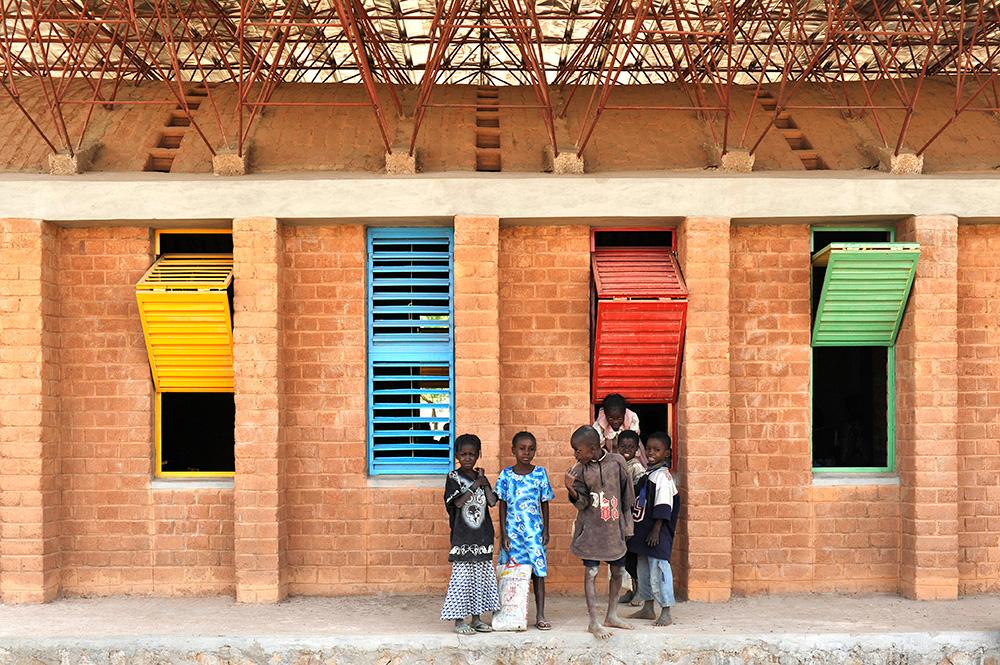
Kéré was the oldest son of the village chief and the first in his community to attend school, only the city of Gando didn’t have a school, so he left his family at the age of seven. His small childhood classroom in Tenkodogo was constructed of cement blocks and lacked ventilation and light. Trapped in that extreme climate with over one hundred classmates for hours at a time, he vowed to one day make schools better.
“Good architecture in Burkina Faso is a classroom where you can sit, have light that is filtered, entering the way that you want to use it, across a blackboard or on a desk. How can we take away the heat coming from the sun, but use the light to our benefit? Creating climate conditions to give basic comfort allows for true teaching, learning and excitement.”
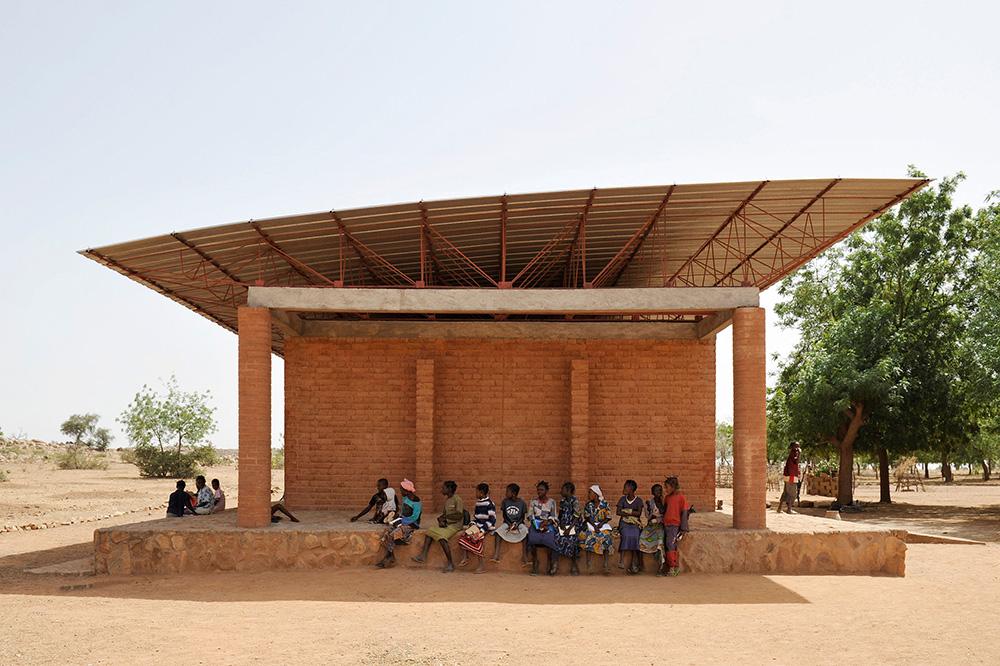
In 1985, he uprooted again, this time, much further from home, traveling to Berlin on a vocational carpentry scholarship, learning to make roofs and furniture by day, while attending secondary classes at night. He was awarded a scholarship to attend Technische Universität Berlin (Berlin, Germany) in 1995, graduating in 2004 with an advanced degree in architecture.
Although far from Burkina Faso, Kéré’s mind never strayed from his native homeland. He recognized the responsibility of his privilege, establishing the foundation “Schulbausteine für Gando e.V.”, translated to “school building blocks for Gando” and later renamed Kéré Foundation e.V., in 1998 to fundraise and advocate for a child’s right to a comfortable classroom. His first building, Gando Primary School (2001, Gando, Burkina Faso), was built by and for the people of Gando. Locals offered their input, labor and resources from conception to completion, crafting nearly every part of the school by hand, guided by the architect’s inventive forms of indigenous materials and modern engineering.
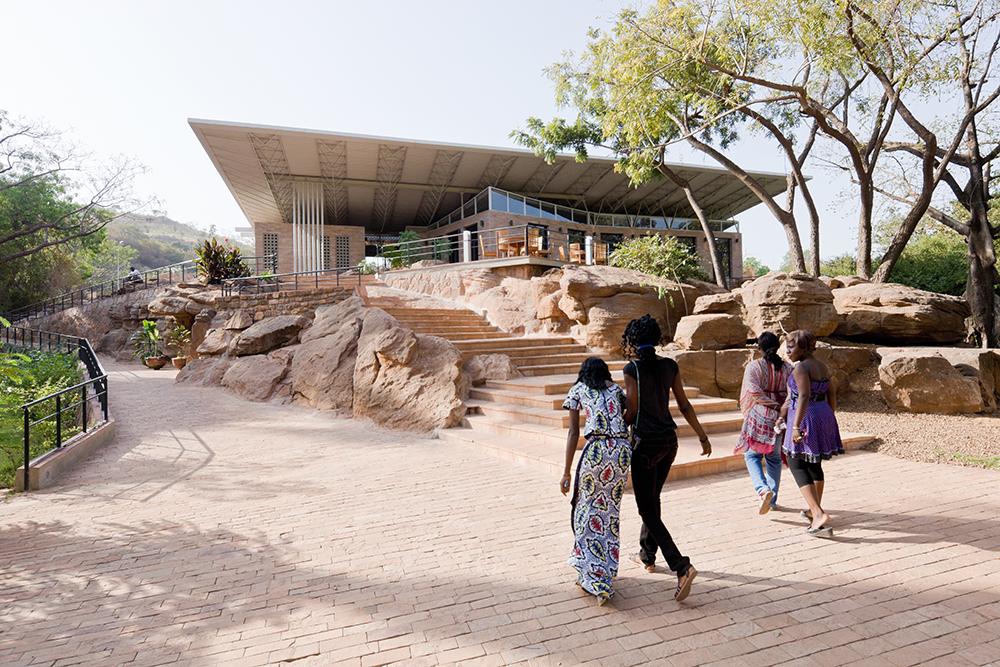
The success of Gando Primary School awarded him the Aga Khan Award for Architecture in 2004, and was the catalyst for establishing his practice, Kéré Architecture, in Berlin, Germany in 2005. The realization of additional primary, secondary, postsecondary and medical facilities soon followed throughout Burkina Faso, Kenya, Mozambique and Uganda. Kéré’s built works in Africa have yielded exponential results, not only by providing academic education for children and medical treatment for the unwell, but by instilling occupational opportunities and abiding vocational skills for adults, therefore serving and stabilizing the future of entire communities.
With each trip back to Gando, Kéré has bestowed purposeful ideas, technical knowledge, environmental understanding and aesthetic solutions, but his service to humanity through cultural sensitivity, process of engagement and devotion proves as a constant example of generosity to the world. “I considered my work a private task, a duty to this community. But every person can take the time to go and investigate from things that are existing. We have to fight to create the quality that we need to improve people’s lives.”
His work has expanded beyond school buildings in African countries to include temporary and permanent structures in Denmark, Germany, Italy, Switzerland, the United Kingdom, and the United States. Two historic parliament buildings, the National Assembly of Burkina Faso (Ouagadougou, Burkina Faso) and Benin National Assembly (Porto-Novo, Republic of Benin), have been commissioned, with the latter currently under construction.
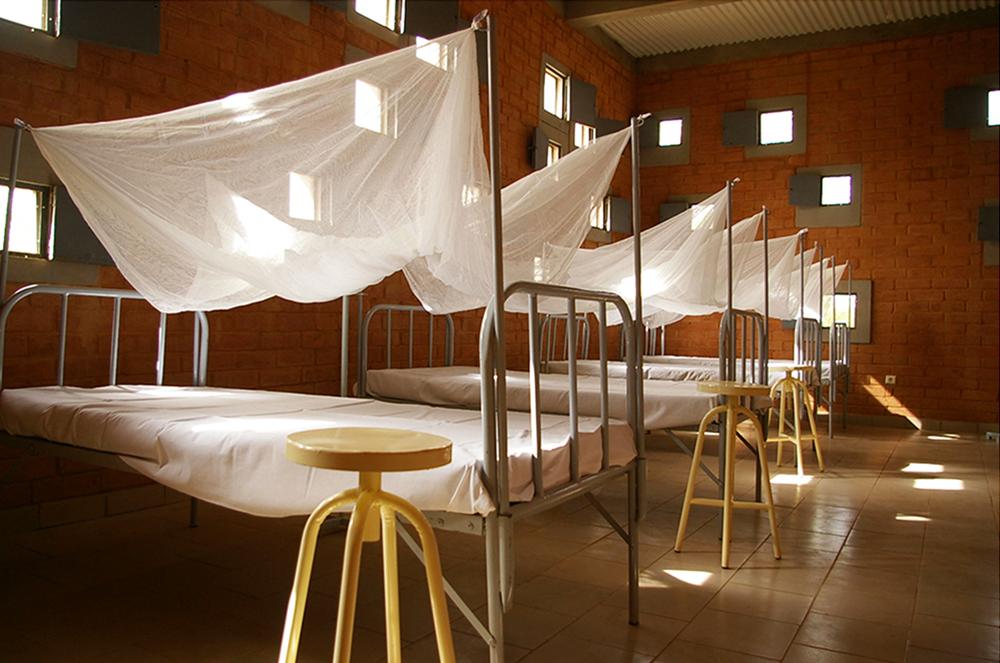
Additional awards include the Cité de l’Architecture et du Patrimoine’s Global Award for Sustainable Architecture (2009), BSI Swiss Architectural Award (2010); the Global Holcim Awards Gold (2012, Zurich, Switzerland), Schelling Architecture Award (2014); Arnold W Brunner Memorial Prize in Architecture from the American Academy of Arts & Letters (2017); and the Thomas Jefferson Foundation Medal in Architecture (2021).
The architect has been a visiting professor at the Harvard University Graduate School of Design (Massachusetts, United States), Yale School of Architecture (Connecticut, United States), and holds the inaugural Chair of Architectural Design and Participation professorship at the Technische Universität München (Munich, Germany) since 2017. He is an Honorary Fellow of Royal Architectural Institute of Canada (2018) and the American Institute of Architects (2012) and a chartered member of the Royal Institute of British Architects (2009).
Kéré is a dual citizen of Burkina Faso and Germany and spends his time professionally and personally equally in both countries.

